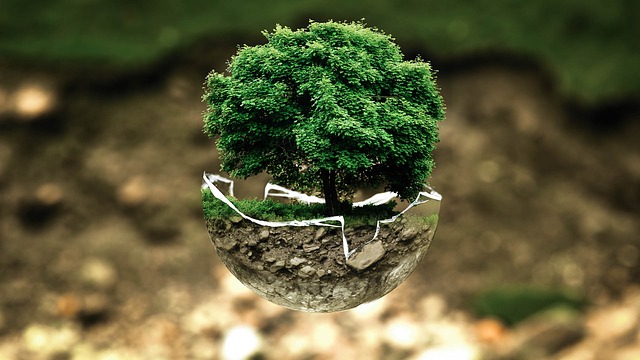On 9 March 2022, at the occasion of the Human Rights Council’s 49th regular session, UN’s Special Rapporteur on human rights and the environment David Boyd unveiled his latest thematic report The right to a clean, healthy and sustainable environment, with a focus on the human rights obligations related to safeguarding the right to a clean, healthy and sustainable environment.
The document was met with support from the Global Alliance of National Human Rights Institutions (GANNHRI), the world’s largest NHRI network gathering over 110 national human rights institutions, including ours.
It points to environmental injustices and the disproportionate effects of environmental pollution on certain population groups, expresses growing concerns over environmental justice and equity issues and warns about the emergence of the so-called “sacrifice zones”: extremely contaminated areas where vulnerable and marginalized groups bear disproportionate burden of the health, human rights and environmental consequences of exposure to pollution and hazardous substances. Thus, bold, immediate and efficient human rights-based measures aimed at the detoxification and revitalization of these areas are necessary, the text stresses. However, they will only be sustainable if green policies based on the principles of prevention, precaution and non-discrimination are persistently implemented.
Despite the fact that the climate crisis and its effects have nowadays become widely discussed, their concrete consequences, such as premature deaths, are still not receiving enough attention. For instance, according to the World Health Organization’s data, more than 750,000 workers die annually due to exposure to toxic chemicals in their workplaces, such as floating particles, asbestos, arsenic or diesel exhaust gasses. Hundreds of millions of tons of toxic chemicals are released into the air, water and soil due to the fact that the production, use and the availability of toxic chemicals has been growing at an accelerated rate.
On the other hand, there have been positive developments as well. In October 2021 UN’s Human Rights Council adopted its Resolution 48/13, recognizing for the first time that clean, healthy and sustainable environment is a human right, and called on States around the world to work together, and with other partners on its implementation.
Along with supporting Special Rapporteur’s new report, GAHHNRI expressed its commitment to continue its cooperation with the Human Rights Council, other UN mechanisms and all other relevant stakeholders in the efforts to strengthen the respect for the right to clean, healthy and sustainable environment and welcomed the fact that Rapporteur Boyd’s report emphasizes the crucial role of national human rights institutions in its protection.
The right to clean, healthy and sustainable environment is a topic our institution has been working on for a number of years, culminating in our Special Report: The Right to A Healthy Life and Climate Change in the Republic of Croatia (2013-2020) in which we demonstrate the interconnection between human rights, environmental protection and the respect for the right to a healthy environment enshrined in Article 70 of the Constitution of the Republic of Croatia via an overview of our work on the cases related to air, water and soil pollution over the years. Furthermore, we have been actively contributing to the work of GANHRI and the European Network of National Human Rights Institutions (ENHRI) in these areas. The networks have recognized our work on the topics of climate change and environmental protection as an example of good practice and featured it in ENNHRI’s 2020 publication Human Rights in Practice: Climate Change and Human Rights and their 2021 paper Climate Change and Human Rights in the European Context, among others. In addition to this, our work, with the focus on the analysis of the human rights impacts of the catastrophic floods hitting Eastern Croatia in 2014 and the coastal fires in 2017, was showcased at the NHRIs COP26 Symposium held last year in Glasgow.


